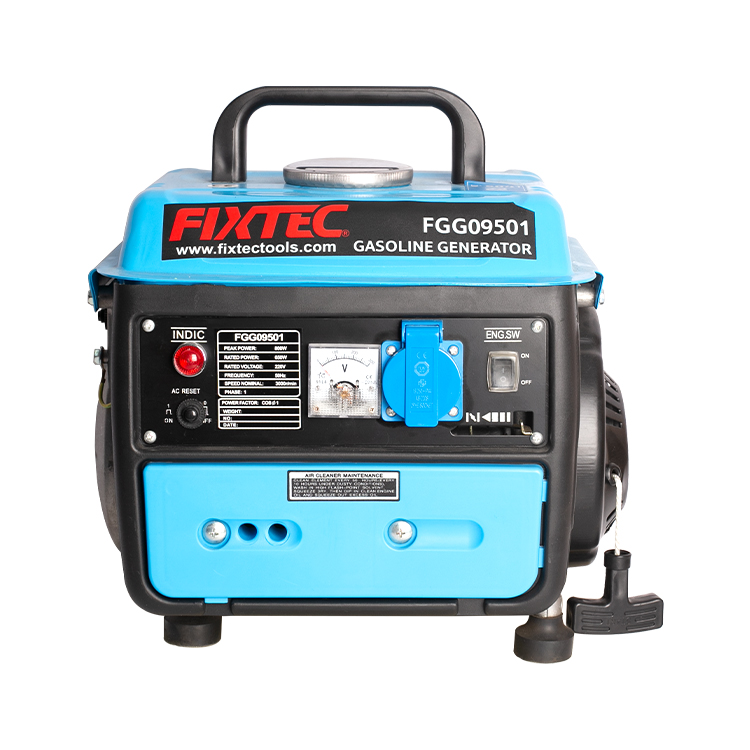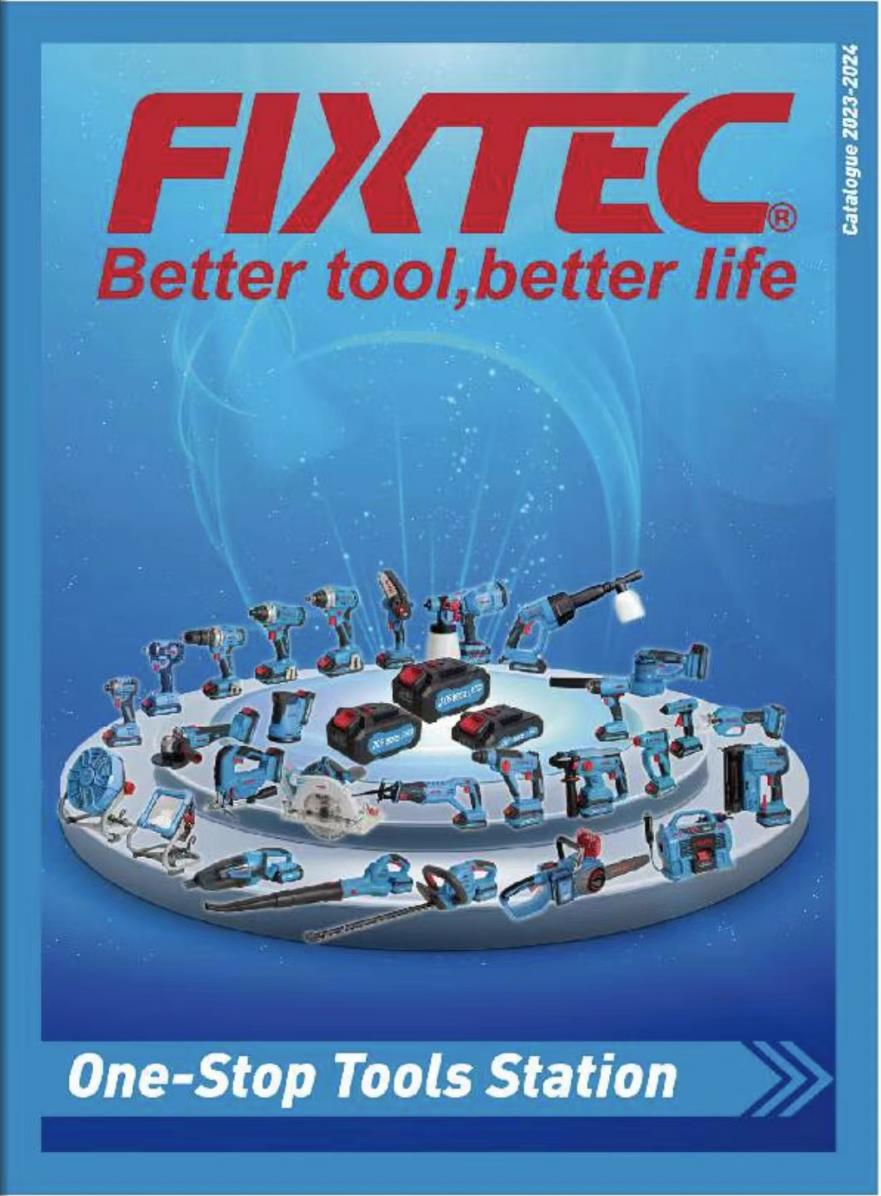A home generator can help you handle emergencies by ensuring essential systems continue running. During power outages, it keeps electricity generation going for lights, appliances, heating systems, air conditioning, sump pumps, Wi-Fi, and other necessities, preventing food spoilage and basement flooding, thus saving you money. For many industries, just one hour of power loss can result in revenue losses of up to $100,000, making the right choice of generator a crucial factor in business success. To help you prepare for emergencies, we’ve created a guide to make it easier for you to choose the right-sized generator to power your home or factory during a blackout.
II. Calculate what size generator you need
Step1:List all the appliances you want to power with generators for home.
Step2:Find the starting and running wattage for each appliance on your list. If these values aren’t available on the appliance label, you can use this wattage estimation guide for reference.
If the appliance’s wattage is not indicated, look for the amperage instead. You can calculate the wattage by multiplying the amperes by the voltage using this formula:
WATTS = VOLTS x AMPS
For example, a device rated at 10 amps and operating on 110 volts will have a wattage of 1,100 watts (10 x 110 = 1,100).
Step3:Add up the wattage of all the appliances. Use this total to determine the appropriate size of the electric generator you need for your home.
III. A reference table of power requirements you might need.
If you only need to power the essentials, your list might include these items.
3.1 Powering Just the Essentials
| Appliance | Running (Rated) Watts | Additional Starting (Surge) Watts |
|---|---|---|
| Refrigerator/Freezer | 2900 | 700 |
| Window AC – 10,000 BTU | 1200 | 1800 |
| Washing machine | 1200 | 1200 |
| Clothes dryer | 6750 | 5400 |
| Electric water heater | 4500 | 4500 |
| Total Running (Rated) Watts= 16,550 | 5400 (Select Single Highest Starting Watts) | |
Total Starting Watts Required=16,550 + 5400 =21,950
In this case, you will need a generator that produces 21,950 Additional Starting (Surge) Watts and 16,550 Total Running (Rated) Watts.
3.2 Powering the Whole House
| Appliance | Running (Rated) Watts | Additional Starting (Surge) Watts |
|---|---|---|
| Washing machine | 1200 | 1200 |
| Clothes dryer | 6570 | 5400 |
| Refrigerator/Freezer | 2900 | 700 |
| 2-ton central AC | 8750 | 3800 |
| Electric water heater | 4500 | 4500 |
| Electric range | 2100 | 2100 |
| Microwave oven (800W) | 1300 | 1300 |
| TV (46”) | 190 | 190 |
| Laptop | 250 | 250 |
| Dishwasher (cool dry) | 540 | 216 |
| 8+ light fixtures | 1100 | 1100 |
| Total Running (Rated) Watts= 29400 | 5400 (Select Single Highest Starting Watts) | |
Total Starting Watts Required=29400 + 5400 =34800
In this case, you will need a generator that produces 34800 Additional Starting (Surge) Watts and 29400 Total Running (Rated) Watts.
| Appliance | Running (Rated) Watts | Additional Starting (Surge) Watts |
|---|---|---|
| Air Compressor 1½ HP | 2500 | 2500 |
| Airless Sprayer ⅓ HP | 600 | 1200 |
| Table/Radial Arm Saw – 10 inches | 2000 | 2000 |
| Belt Sander | 1200 | 2400 |
| Circular Saw | 1500 | 1500 |
| Deep Freezer | 500 | 500 |
| Electric Drill ½ HP | 1000 | 1000 |
| Hammer Drill | 1000 | 3000 |
| Heat Pump | 4700 | 4500 |
| Miter Saw – 10 inches | 1800 | 1800 |
| Planer/Jointer – 6 inches | 1800 | 1800 |
| Reciprocating Saw | 960 | – |
| Total Running (Rated) Watts= 19560 | 4500 (Select Single Highest Starting Watts) | |
Total Starting Watts Required=19560 + 4500 =24060
In this case, you will need a generator that produces 24060 Additional Starting (Surge) Watts and 19560 Total Running (Rated) Watts.
IV. Factors to Consider When Choosing a Generator
While wattage specifies the power capacity required, other aspects might also play a role in choosing the right generator.
4.1 Wattage
Generators are available in various power capacities, so it’s important to determine whether you need a small, medium, or powerful industrial unit. For reference, mini generators can deliver up to 20,000 watts (20 kW), large generators provide approximately 100,000 watts (100 kW), and extra-large units supply 240,000 watts (240 kW) or more.
To make it easier to select the right generator, here’s a practical guide to different generator sizes and their common applications:
1 kW to 10 kW: These generators are perfect for backup power, capable of supplying electricity to a few rooms in your home. For example, a portable 5 kW generator can run a refrigerator, four lights, a fan, and an electric motor. For an average-sized home, you might need at least 10 kW. Most generators in this category operate on natural gas, propane, or diesel.For those seeking a cleaner alternative, the best 3000-watt solar generator can also provide a reliable power solution, especially in off-grid locations.
10 kW to 50 kW: Generators in this range are suitable for powering multiple appliances simultaneously, such as HVAC systems, water pumps, and washing machines. Units in this category are typically propane generators, diesel generators, or natural gas generators.
50 kW to 100 kW: These generators, often diesel-powered, are a reliable choice for backup power in offices, restaurants, and other commercial spaces.
100 kW to 200 kW: Ideal for industrial sites, larger offices, and establishments with numerous appliances like computers, lights, fans, and air-conditioning units. These generators can run on both diesel and gas, and they’re also commonly used to power fishing boats.
200 kW to 300+ kW: For continuous power needs, industrial generators of this size are a solid option. They operate on diesel or gas and can power large industries and high-rise buildings, including those equipped with elevators and escalators.
4.2 Fuel Type
Generators can operate on various fuel types, including gasoline, diesel, propane, and natural gas. Selecting the appropriate fuel depends on factors like availability, cost-effectiveness, storage conditions, and your specific power needs. Here’s a breakdown of each fuel type:
Gasoline: Gasoline-powered generators are widely used due to the fuel’s easy availability and the portability of these units. They are ideal for short-term use and emergency backups. However, gasoline has a relatively short shelf life and may not be the best choice for prolonged or frequent use.If you’re looking for a 20,000-watt gas-powered portable generator sale, this could be a good option for power needs during emergencies or temporary situations.
Diesel: Diesel generators home are known for their fuel efficiency and durability. They are well-suited for heavy-duty, long-term applications such as powering industrial sites, large buildings, and high-capacity equipment. Diesel fuel is stable and safer to store than gasoline, but these generators can be louder and produce more emissions.
Propane: Propane generators are an Eco-friendly, cleaner-burning alternative to gasoline and diesel. They have a longer shelf life than gasoline and are ideal for residential backup systems. While they offer slightly lower power output, whole home propane generators are reliable for powering your entire home during outages, making them a sustainable option for homeowners.
Natural Gas: Natural gas generators connect directly to a gas supply line, providing a virtually endless fuel source. They are perfect for long-term or standby use in locations with reliable gas access, such as homes, businesses, and essential facilities. For those seeking versatility, a 20 amp standby generator gasoline model can offer comparable reliability. However, natural gas generators require professional installation and are not portable.
When selecting the fuel type for your generator, consider the balance between convenience, cost, environmental impact, and the intended use of the generator.
4.3 Types of generators
Understanding the various types of generators can help you choose the one best suited for your specific needs:
4.3.1 Diesel Generators

Diesel generators are renowned for their durability, fuel efficiency, and ability to handle heavy loads, making them a reliable choice for industrial and commercial applications. Generator diesel models are built to run for extended periods, often in harsh conditions, with lower maintenance needs compared to other types. However, they tend to be noisier and may require soundproof enclosures in residential areas.
Best for: Industrial and commercial use, heavy-duty applications requiring long-term operation.
Pros: Durable, fuel-efficient, handles heavy loads, requires less maintenance.
Cons: Noisy, higher upfront cost, emits more pollutants, not ideal for residential use without soundproofing.
4.3.2 Gasoline Generators

Gasoline generators are a popular choice due to their affordability and widespread availability. They are well-suited for short-term use, offering a good balance between cost and power output. These generators are ideal for residential backup, DIY projects, and small-scale outdoor events. However, gasoline has a shorter shelf life and is less efficient for prolonged or heavy use.
Best for: Residential backup, small-scale outdoor events, and short-term use.
Pros: Affordable, widely available fuel, portable, easy to start.
Cons: Shorter runtime, higher fuel consumption, gasoline has a limited shelf life.
4.3.3 Portable Generators

Portable generators are compact and easy to move, making them a versatile solution for a wide range of scenarios. They are ideal for camping trips, outdoor events, construction sites, or emergency backup power. Many generator portable models include user-friendly features like wheels and handles for enhanced mobility. While convenient, they may require frequent refueling and careful ventilation during operation.For those seeking more power, you can explore options like the 20,000 watt gas-powered portable generator sale, offering ample capacity for larger projects or backup needs.
Best for: Camping, outdoor events, construction sites, and emergency power for homes.
Pros: Lightweight, easy to transport, versatile for various applications.
Cons: Limited power output, requires frequent refueling, needs proper ventilation to avoid carbon monoxide buildup.
4.3.4 Standby Generators

Standby generators are permanently installed units that automatically activate during a power outage. Designed for homes, businesses, and facilities with critical power needs, these generators provide seamless and reliable power. Typically connected to a natural gas, propane, or diesel standby generator supply, they provide long-term use without the need for manual refueling, making them a convenient solution for uninterrupted power.
Best for: Homes, businesses, and facilities needing automatic backup power during outages.
Pros: Automatically activates during power outages, reliable for long-term use, connects to natural gas or propane.
Cons: High installation cost, requires professional setup, stationary and not portable.
4.3.5 Inverter Generators

Inverter generators are highly efficient, compact, and quiet. They produce clean and stable energy, making them perfect for sensitive electronics like laptops, smartphones, and medical devices.They are lightweight and portable, making them perfect for outdoor activities and residential use, especially in environments where noise reduction is a priority. For example, the Champion 2000 watt inverter generator offers excellent portability and reliability for small-scale power needs.
Best for: Powering sensitive electronics like computers, medical devices, and smartphones.
Pros: Produces clean, stable energy, quieter operation, fuel-efficient, compact, and lightweight.
Cons: Higher cost per watt, not suitable for heavy industrial loads.
4.4 Noise
Noise level is a crucial consideration, especially if the generator will be used in residential areas, campsites, or events where peace is a priority. Diesel generators are generally louder, whereas inverter generators and silent generators are the quietest options, designed to run at low noise levels. For noisier models, adding soundproofing measures or placing the generator in a noise-reducing enclosure can help minimize disturbances.
V. FAQ About Generators
5.1 Is it safe to use a generator in the rain?
It is not recommended to use a generator in the rain unless it is properly covered with a weather-resistant shelter. Water exposure can cause electrical hazards or damage the generator.
5.2 Can I run a generator indoors?
No, generators should never be used indoors due to the danger of carbon monoxide poisoning.
Always position the electric generator for home at least 20 feet away from your home, making sure the exhaust is directed away from windows, doors, air conditioners, and other nearby structures.
5.3 How do I know if my generator is overloaded?
Signs of an overloaded generator, such as a generator 2000 watt, include tripped circuit breakers, dimming or flickering lights, or the generator struggling to start. To avoid overload, ensure the devices you’re powering do not exceed the generator’s rated wattage.
5.4 What is the difference between portable and standby generators?
Portable power generators are mobile and suitable for temporary power needs, such as camping or outdoor events. Standby generators are permanently installed and automatically provide backup power during outages, ideal for homes or businesses that need consistent electricity.
5.5 What is the best way to advertise and market generators to other businesses?
Effective advertising strategies for generators include digital marketing through your website, social media, and industry-specific platforms (e.g., trade shows or online marketplaces). Highlight your product’s features and benefits, and provide testimonials or case studies from satisfied customers to build trust and credibility with your business clients.
If you’re looking for reliable generator supplier, feel free to visit the Fixtec website (链接). As a trusted one-stop electric tool supplier based in China, we provide a full range of tools to suit your needs. If you found this article useful, make sure to follow our website for regular updates on electric tools and helpful answers to your questions.







